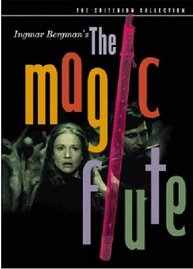Logic vs Common Sense: do you see any differences between them? If so please explain...
Asked by Sally Petty 6 days ago in Using LinkedIn Open
Your public answer:
“While logic seems to be everywhere nowadays, given computers, databases, the Internet, etc., common sense does not seem to be as predominant a way of approaching life's problems. It seems that modern logic, especially the logic of the Internet and its search engines, is based on symbolic or mathematical logic that simply manipulates names along conditional paths (logistics for example); whereas, when we humans are trying to make decisions, though we may use the search engines to accumulate our data and information, we employ a logic of common sense. At any given time, then, there appear to be two available logics for us to work with. Symbolic, conditional logic that manipulates nominal propositions seems to presuppose epistemological and metaphysical idealism. By this I mean that before the manipulation begins, the logician supposes that the way he or she knows the named objects is primarily a process of us forming conceptual constructs whereby he or she can experience the people and the world around us. One defines the database before populating it with reported data. Thus, we may never legitimately claim to know the persons or things in the world in and of themselves. Those are forever hidden from us. Think of how the best Internet dating services must work by manipulating the data of responses to arrive at a "perfect" match and yet we all know that until one meets with the person, that person still remains a mystery for a long time and maybe forever. Looked at this way, we will never truly know the other and, for that matter, never truly know ourselves. On the other hand and by contrast, the logic of common sense allows our knowledge to be formed by the people and the world around us. We don't construct them; rather, we discover them via common sense experiences of them. This commonsense approach employs a logic that is either inductive, which can only lead to probable truths or deductive, which leads to certainty. Inductive processes are used by juries. Statisticians may use databases with symbolic, conditional logic to help pick juries, but seasoned attorneys can work with the inductive process and get good results as well. But commonsense logic also uses deduction to great advantage over symbolic logic. For here it is working with presuppositions that are the opposite of that symbolic, nominalistic form of logic. Commonsense logic presupposes epistemological and metaphysical realism. By this I mean that before the deduction begins, the logician supposes that the way he or she knows objects is primarily a process of us simply apprehending the real nature and essence of the person or things and thereby, in an ordered manner, he or she can name the objects in accord with who or what they really are. Thus, we legitimately and with common sense may claim to know the persons or things in the world, not all at once of course, but as part of a continuing process of encountering reality outside of ourselves over time. These real encounters are forever being disclosing things to us. Think of how finding someone to marry or befriend does not end the common sense process of mutual revelation over time. By finding others, we also find ourselves. So, while symbolic, conditional, nominalistic logic is advantageous for searches and compilations of resulting data and information, I for one do not rely on that kind of logic to make judgments requiring induction or deduction and I certainly don't rely on it to make decisions. Thanks for your question. I will refer others to your question and the answers for their further consideration and comment.”
for people who want to make better decisions
MOVIES FOR DECISION-MAKERS
Below are the cover images of movies for decision-makers, with clues to better decision-making.
Romero: the significant decision
"I know men and I tell you that Jesus Christ is no mere man. Between Him and every other person in the world there is no possible term of comparison. Alexander, Caesar, Charlemagne, and I have founded empires. But on what did we rest the creation of our genius? Upon force. Jesus Christ founded His empire upon love; and at this hour millions of men would die for Him."
--Napoleon
Decision-making: like climbing ...

a spiral staircase...one step at a time.
John Darrouzet
Special Counsel for Decision-Makers
Links
Followers
Subscribe To
********************* Advertising Disclaimer *********************
NOTE WELL:
Allowing the placement of the ads set out below should not be interpreted to constitute an endorsement or recommendation in any way by Special Counsel for Decision-Making or John Darrouzet of the content or programs referred to therein by the advertisers.
*****************************************************************************************************************************************
Allowing the placement of the ads set out below should not be interpreted to constitute an endorsement or recommendation in any way by Special Counsel for Decision-Making or John Darrouzet of the content or programs referred to therein by the advertisers.
*****************************************************************************************************************************************
*************************** Legal Notice **************************
Decision-Maker's Path (tm) trademark by, and blog content copyright © 2008, John Darrouzet. All rights reserved.


















































1 comment:
logic is specific and therefore operates within given and determinable parameters (from here...to there), while common sense applies to phenomena that cannot or are not easily quantified by parameters. Thus logic has good applications in specific problem solving, whereas common sense is an invaluable community building tool, as well as relating intuitive perceptions of relationships that are not obvious.
ivanmorf
Post a Comment